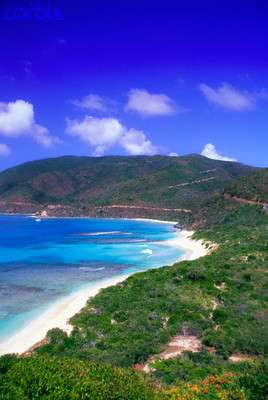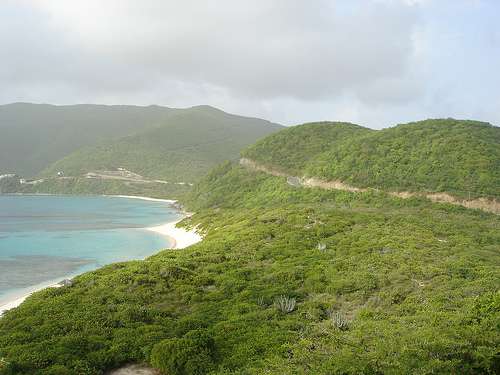Getting to British Virgin Islands and getting around. Our transportation tips will
help make your trip smoother. More good sand advice.
Entry Documents
Passport is required for all visitors. A return or on-going ticket is also required by all.
Airlines Flying Here
American Airlines flys directly from Miami to The Terrence B. Lettsome Airport (Beef Island, Tortola). There are no direct flights from Canada, Europe, or South America to the BVI’s airports. The Terrence B. Lettsome Airport has daily flights with stops in San Juan from InterCaribbean, Liat, Windward Island Airways, Seaborne Airlines, American Airlines, Cape Air, Delta, and JetBlue. VI Airlink flies from St. Thomas, Beef Island, St. Thomas, and Virgin Gorda to Anegada. Cape Air has service to Virgin Gorda from San Juan, PR and St. Thomas, USVI. Tradewind Aviation has direct flights to Virgin Gorda from San Juan.
Airport
Terrance B. Lettsome International Airport, formerly known as Beef Island Airport, is the BVI’s main airport. Auguste George Airport is the northernmost airport in the islands, located on Anegada. Virgin Gorda Airport is in Spanish Town, and is open to a few inter-island flights.
Departure Tax
The airport departure tax is $50 pp in Beef Island and $35 pp in Virgin Gorda – payable in USD at the airport. Environmental Levy: $10 per person payable in USD at the port of entry upon arrival.
Driving
Drive on the left-hand side of the road.
Local Transportation
2021
1. Taxis: Taxis are readily available on all major islands in the British Virgin Islands. They are the most convenient and reliable mode of transportation and can be easily flagged down on the street or arranged through your accommodation.
2. Ferries: With over 60 islands in the British Virgin Islands, ferries are a popular mode of transportation. They offer scenic views and connect the major islands like Tortola, Virgin Gorda, and Jost Van Dyke.
3. Water Taxis: For a more luxurious and faster option, water taxis are available for private hire. They offer personalized services and can take you to any destination within the islands.
4. Rental Cars: Renting a car is a great way to explore the British Virgin Islands at your own pace. There are several car rental companies available on the major islands, and the roads are well-maintained and easy to navigate.
5. Scooters and Bikes: Scooters and bikes are a popular mode of transportation for short distances and are a fun way to explore the islands. They can be rented from various shops and rental companies.
6. Public Buses: Public buses are a budget-friendly option for getting around the islands. They operate on set routes and schedules, and can be found at designated bus stops.
7. Walking: Many areas in the British Virgin Islands are easily accessible by foot, making walking a great way to explore the local culture and scenery. Just make sure to wear comfortable shoes and stay hydrated.
8. Private Tours: Private tours are a great way to explore specific areas or attractions in the British Virgin Islands. They can be arranged through tour companies or your accommodation.
9. Water Sports: With its crystal-clear waters, the British Virgin Islands are perfect for water sports like kayaking, paddleboarding, and snorkeling. These activities not only provide transportation but also allow you to experience the beauty of the islands up close.
10. Helicopter Tours: For a unique and unforgettable experience, consider taking a helicopter tour of the British Virgin Islands. This mode of transportation offers stunning aerial views of the islands and can be arranged through various tour companies.



